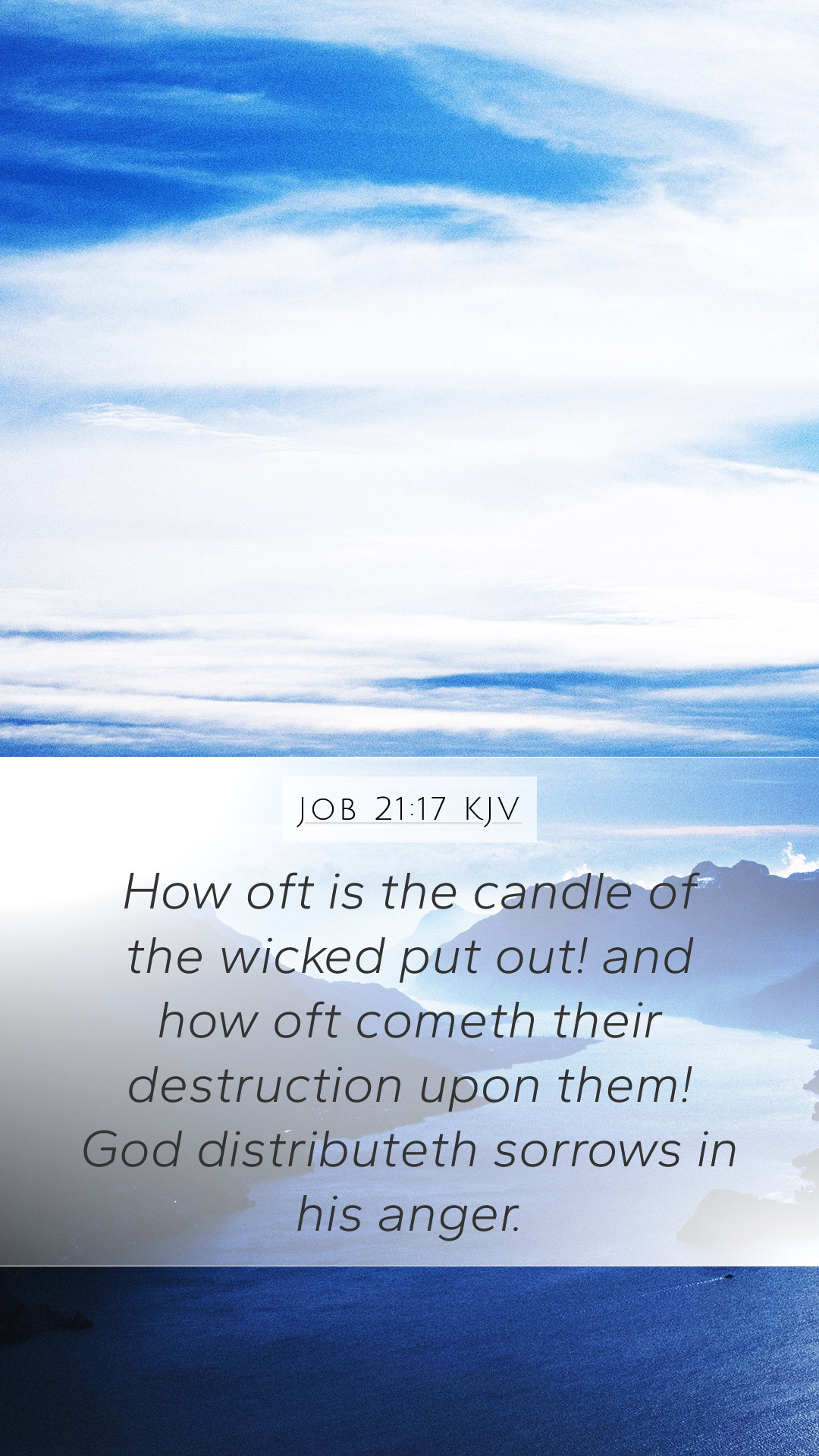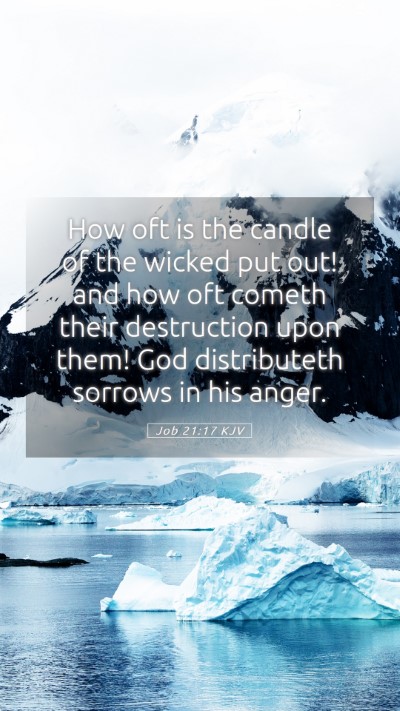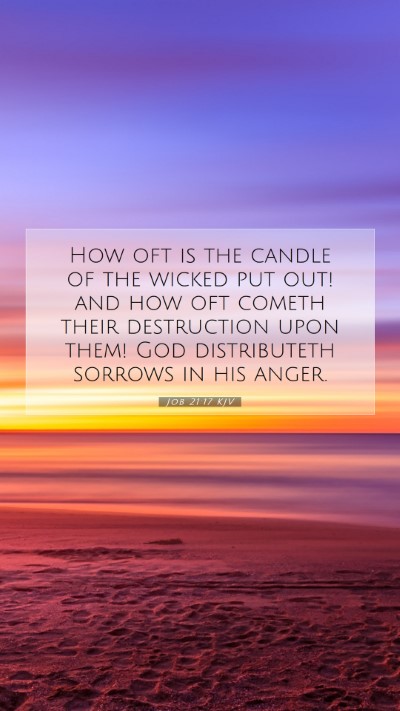Understanding Job 21:17 - Bible Verse Meaning and Commentary
Job 21:17 states, "How often is the candle of the wicked put out? And how oft cometh their destruction upon them? God distributeth sorrows in his anger." This verse arises from a profound context within the Book of Job, where Job is responding to the misconceptions about the prosperity of the wicked, which his friends have presented.
Summary of Bible Verse Interpretations
This verse emphasizes the seeming contradiction between the apparent prosperity of the wicked and the eventual justice served by God. Job questions the perceived immediate consequences of wickedness, arguing against the traditional belief that the wicked are always punished in this life.
Insights from Public Domain Commentaries
-
Matthew Henry:
Henry notes that the 'candle of the wicked' represents their life and prosperity, which often appears to shine brightly for a time. Yet, he emphasizes, it is ultimately extinguished. This implies the transient nature of worldly success and the certainty of divine judgment.
-
Albert Barnes:
Barnes elaborates on the theme of divine justice, suggesting that while the wicked may seem unscathed for a time, their end is certain. He states that God's distribution of sorrows is a reflection of His anger towards sin, indicating that divine retribution may not always be evident in the immediate but is assured in the eternal scope.
-
Adam Clarke:
Clarke points out the rhetorical nature of Job's question, reflecting on the observations of life where the wicked often face little to no immediate consequences. He declares that God's governance of the world does not conform to human expectations and that the true punishment often manifests in a manner unforeseen by mankind.
Bible Verse Explanations
The question Job poses is critical for understanding the suffering of the righteous versus the wicked. This leads to deeper insights about divine justice and the temporal versus eternal ramifications of human actions. It challenges readers to consider how today’s circumstances can be deceptive concerning God’s ultimate judgment.
Key Themes in Job 21:17
- The Nature of Divine Justice: This verse invites readers to delve into the theme of divine retribution, pondering how God's timing and methods of punishment differ from human expectations.
- Temporary Prosperity: The 'candle of the wicked' symbolizes fleeting success. This metaphor serves to illustrate the impermanence of life's rewards absent of righteousness.
- Suffering and Anger: Job’s assertion that God 'distributeth sorrows' underscores the idea that suffering is not arbitrary but a response from God towards the wickedness observed in the world.
Application of Job 21:17 in Daily Life
In applying this verse to daily circumstances, individuals are encouraged to reflect on their understanding of justice in the world today. It provides comfort to the suffering or oppressed, reminding them that divine justice is an assured reality that may not be manifested immediately.
Cross References
- Psalms 37:1-2: "Fret not thyself because of evildoers, neither be thou envious against the workers of iniquity. For they shall soon be cut down like the grass, and wither as the green herb."
- Proverbs 14:32: "The wicked is driven away in his wickedness: but the righteous hath hope in his death."
- Ecclesiastes 8:14: "There is a vanity which is done upon the earth; that there be just men, unto whom it happeneth according to the work of the wicked; again, there be wicked men, to whom it happeneth according to the work of the righteous: I said that this also is vanity."
Conclusion
In summary, Job 21:17 serves as a powerful reminder of the complexities of life, justice, and divine providence. For those engaging in bible study groups or online bible study, this verse opens valuable discussion about God's judgment and the human perspective on suffering. It encourages deeper examination and bible study insights into how we interpret our surroundings concerning Scripture.


